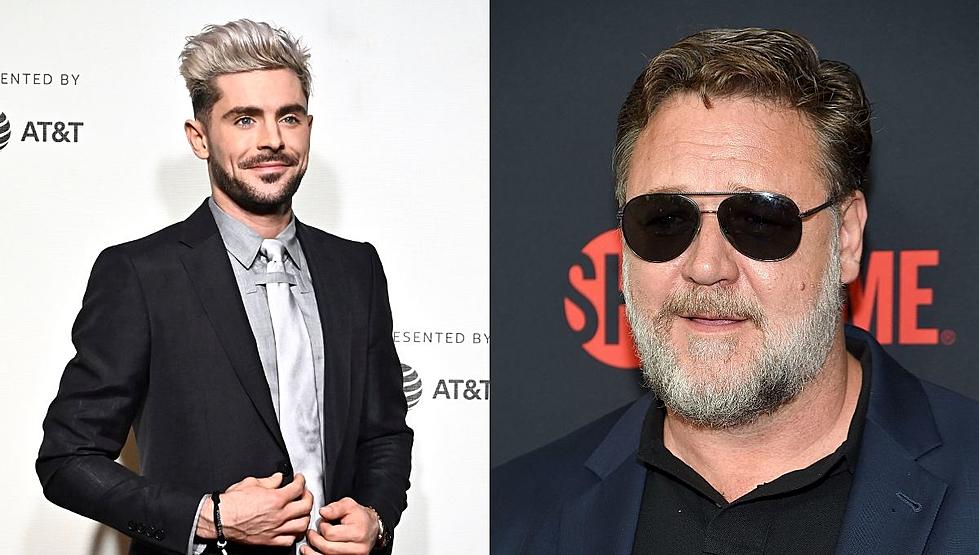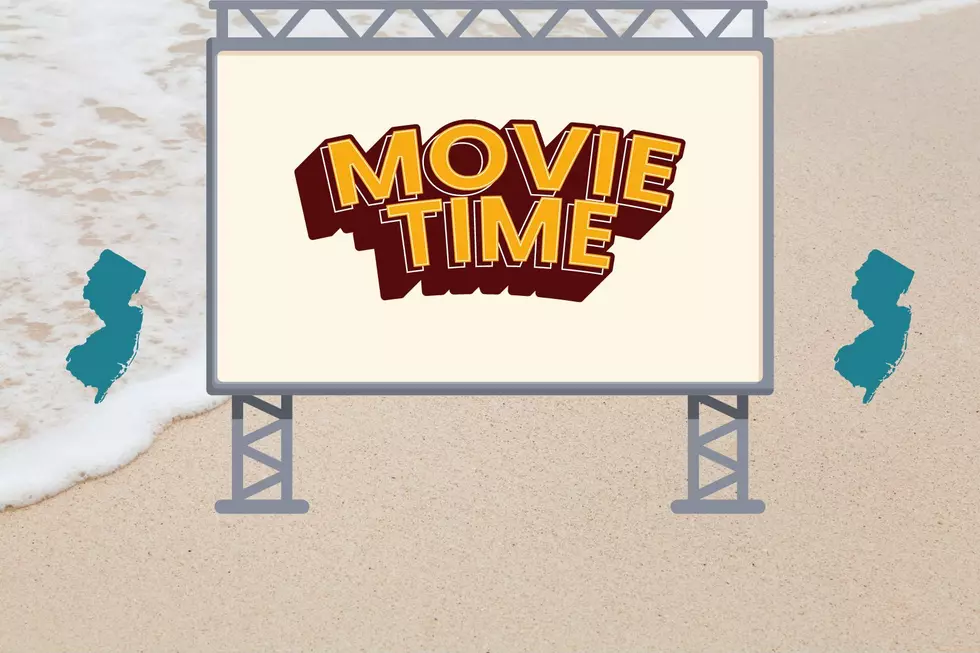![Noah [Celluloid Hero]](http://townsquare.media/site/392/files/2014/10/Celluloid-Hero-film-strip.png?w=980&q=75)
Noah [Celluloid Hero]
Noah (2014)
Darren Aronofsky is one of my favorite directors, and I was initially surprised when I heard his name attached to this Bible epic. His dark style didn't fit the childhood story I knew of Noah (pretty much this), and I read lots of stories during filming that he was clashing with the studio and the religious leaders who saw rough cuts of the product. If you step away from the Sunday School version of the story, Noah is actually kind of similar to other Aronofsky characters: obsessive to near self-destruction.
(I'd like to point out that I am doing my best to not insult the beliefs of anyone, I'm just reviewing the movie and the story it puts forth)
Adam and Eve had three children: Cain, Abel & Seth. When Cain murdered Abel, he was banished, and went off to start his own culture. Seth also began his own line, and after a few generations, Noah was born. Noah, his wife, and their three sons are good people. They honor The Creator, they love each other, they eat only plants and vegetables (a weird plotline implies that only bad people eat meat). Conversely, the descendants of Cain and their side of society are dark and violent. The two sides are involved in a few altercations, one of which results in Noah's family adopting a young girl who had been left for dead.
In a dream, Noah is warned of a great flood that is meant to wipe out humanity, and it is up to him to save the animals to ensure that Earth won't just die. Noah and his family, along with help from Earth-bound angels, build the giant ark, and the animals arrive in pairs.
Normally, the story from that point is fairly simple: in Sunday School version, no one really believes him until the rains start to fall. The wicked drown, Noah and his family and the animals are safe aboard the ark, and they ride out the storm until they finally crash atop Mount Ararat. I'm no theologian, so for all I know some of these deeper details were a part of the original story, but for me things go into a way different place than I expected. Noah begins to believe that his job is not to restart civilization, instead he is meant to save the animals while ensuring that humanity does NOT begin again, thereby preventing people from ruining the world a second time. He says that he will be responsible for the end of his bloodline, going so far as to threaten to murder his unborn grandchildren. Things get pretty heavy when we glimpse into Noah's mental state. He is wrestling with the fact that he let every other person on the planet die, he is wrestling with the fate of his own family, he is wrestling with the fact that The Creator seems to be ignoring his prayers.
It's difficult to separate this movie from the story most of us grew up with. Instead of comparing it to the Bible, I actually tried to view it as a stand-alone story. If I had no idea who Noah was, I think this would have been fine on it's own as a unique work of fiction. That probably sounds vaguely offensive, and I understand that some people believe in the Bible in a literal sense, while others believe most of the stories were meant to be allegorical. If you want this movie to be "accurate", it will never satisfy everyone because no one knows exactly what happened. I think the moral outrage many people had towards the movie was misplaced.
The whole movie is beautifully shot. The beginning is pure Aronofsky, I felt a lot of nods to "The Fountain". I felt it was mostly well-acted too; obviously the script is going to be a bit odd, being set in Biblical times, and the acting occasionally stretched into melodrama. Still, Russell Crowe and Jennifer Connelly and Ray Winstone all performed admirably. I'm not big into religious movies, but I felt like overall this was an enjoyable viewing experience. It wasn't perfect, there were many head-shaking moments, it really just made me question the logic of the original story, rather than criticisms of the film itself.
On the [Celluloid Hero] scale, "Noah" gets a 6 out of 10.
More From 105.7 The Hawk


![The Man With The Iron Fists [Celluloid Hero]](http://townsquare.media/site/392/files/2013/08/tmwtif.jpg?w=980&q=75)

![[Celluloid Hero]’s Top 5 Horror-Comedies](http://townsquare.media/site/392/files/2015/10/ch-horror-comedy.jpg?w=980&q=75)
![[Celluloid Hero]’s Top Foreign Horror Movies](http://townsquare.media/site/392/files/2018/10/celluloid-hero-halloween.png?w=980&q=75)
![[Celluloid Hero]’s Top 5 Vampire Movies](http://townsquare.media/site/392/files/2019/10/RS4942_153729183.jpg?w=980&q=75)
![[Celluloid Hero]’s Top 5 Zombie Movies](http://townsquare.media/site/392/files/2017/02/RS12323_479562403.jpg?w=980&q=75)
![The Witch [Celluloid Hero]](http://townsquare.media/site/392/files/2020/03/the-witch.jpg?w=980&q=75)
